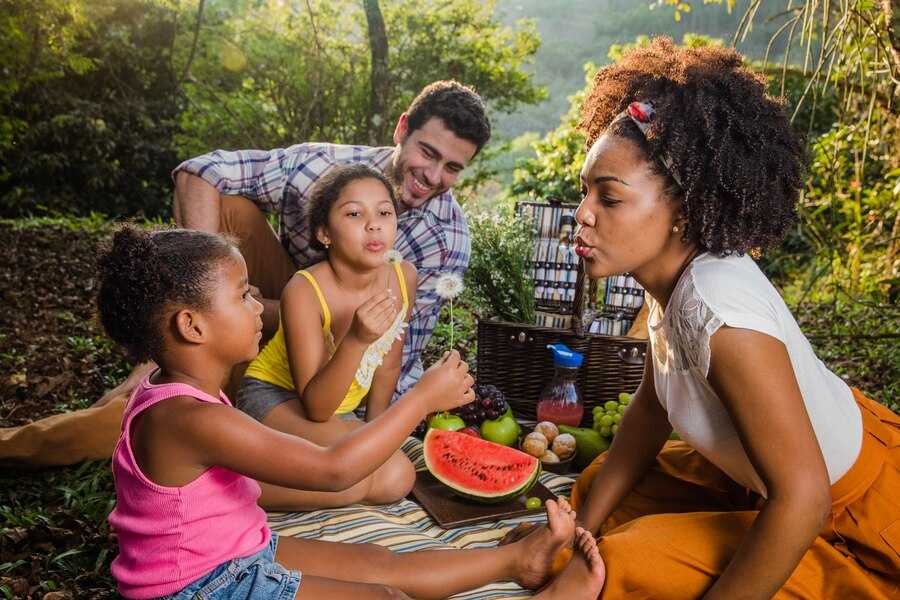on
BY MICHAEL THOMAS
“The oils, found in almost all processed foods, are heavily subsidized because agencies like the U.S. Food and Drug Administration, which regulates the oils, are funded by the industries that produce them.”
The above quote is from RFK (aka Robert F Kennedy Jr., Chairman and Founder of CHD, aka the Children’s Health Defense) while speaking about the family’s health in today’s profit-driven world.
The type of oils in question here is known as seed oils, which are produced using a very high volume of heat and are less beneficial to the body in comparison to oils that are cold pressed like: avocado oil and olive oil, which provide several health benefits.
Another hazard to our health is the coloring in the foods we consume. Do you know that food colors like red no 40, yellow no. 5, and yellow no. 6 are petroleum-derived? These substances are banned in places like Europe but are approved for use by the North American consumer, and what is more troubling is that they are linked to psychiatric and autoimmune problems.
There is scientific evidence that shows how diets high in ultra-processed foods, or UPFs, are associated with an increased risk of dementia, including Alzheimer’s disease and vascular dementia, as well as cognitive wasting and mild cognitive impairment. These foods are often high in unhealthy fats, salt, added sugar, or artificial sweeteners, like sucralose and aspartame.
Avoiding the pitfalls of ill health due to faulty diets is no walk in the park. This is especially true with today’s hefty grocery bills, but one must remember that the body is an investment, and you cannot withdraw what you did not deposit.
That said, a lifestyle rich in fruits, vegetables, whole grains, lean proteins, and healthy fats has been associated with a reduced risk of dementia.
In 2022 a prospective cohort study was published in Neurology and included the data of more than 700,000 people in the United Kingdom. After examining ultra-processed food consumption and various forms of dementia, the researchers found: “In the fully adjusted model, consumption of UPF was associated with higher risk of dementia, Alzheimer’s disease, and vascular dementia, respectively.”
“In addition, replacing 10% of UPF weight in diet with an equivalent proportion of unprocessed, or minimally processed foods was estimated to be associated with a 19% lower risk of dementia.”
The same researchers concluded, “Our findings highlight the contributory role of UPF consumption to the development of dementia and that coordinated global and national public health policies, and clinical guidelines are needed to displace consumption of UPFs with fresh, minimally processed, easily affordable food, to tackle the societal burden of dementia.”
So, the big question here is how we as consumers prevent all this dementia and other degenerative illnesses from taking us to the undertaker sooner rather than later.
In the opening of this article, we looked at the main culprits, namely the Food and Drug Administrations, and the industries that produced the food in every country that you the readers live in.
These are entities that need to be held accountable for giving the green light on importing and exporting such toxic goods, and the industries too should not be allowed to produce such fake foods.
Another major contributing factor to ill health universally is the pesticide that the industry is allowed to use on most of the fresh fruits and vegetables. If consumers do their homework and reject these heavily sprayed foods, this will send the folks behind this deadly game a financial message. “You spray and we keep away.”
“Despite the abundance of science linking exposure to pesticides with serious health issues, a potentially toxic cocktail of concerning chemicals continues to taint many of the non-organic fruits and vegetables eaten by consumers,” said Alexis Temkin, Ph.D., EWG toxicologist.
With this information in mind, there has never been a better time for us the people (aka consumers) to try and watch what we eat, know where our food is coming from, eat only organic food if you can, and apply pressure on the people in the food industry to do better.
Stay in the loop with exclusive news, stories, and insights—delivered straight to your inbox. No fluff, just real content that matters. Sign up today!
In his new role as a reporter and Journalist, Michael can he be described in two words: brilliant, and relentless. Michael Thomas aka Redman was born in Grenada, and at an early age realized his love for music. He began his musical journey as a reggae performer with the street DJs and selectors. After he moved to Toronto in 1989, he started singing with the calypso tents, and in 2008, and 2009 he won the People’s Choice Award and the coveted title of Calypso Monarch. He has taken this same passion, and has begun to focus his attention on doing working within the community.













